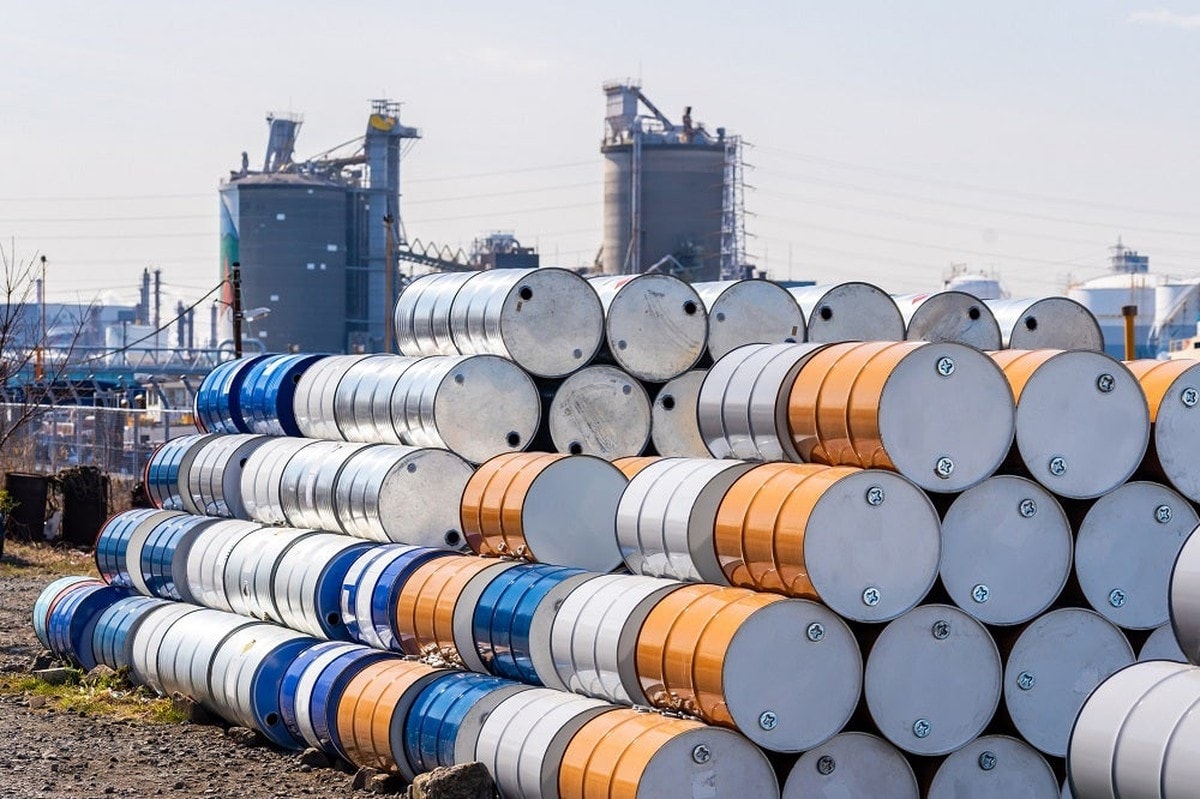Gasoline price today August 3: 4th sharp decrease
World oil prices have slipped far below the $80/barrel mark. Domestic oil prices have recorded their fourth consecutive decline.
Domestic gasoline prices
Domestic retail prices of gasoline on August 3 are as follows:
E5 RON 92 gasoline is not more than 21,616 VND/liter.
RON 95-III gasoline is not more than 22,603 VND/liter.
Diesel oil not more than 19,878 VND/liter.
Kerosene not more than 20,095 VND/liter.
Fuel oil not exceeding 16,886 VND/kg.

The above domestic retail price of gasoline was adjusted by the Ministry of Finance - Industry and Trade in the price management session on the afternoon of August 1.
Diesel oil price decreased the most by 316 VND/liter. Fuel oil price decreased by 292 VND/kg, while E5 RON 92 gasoline decreased by 284 VND/liter and RON 95-III gasoline decreased by 281 VND/liter. Kerosene oil decreased the least by 231 VND/liter.
This is the fourth consecutive time that domestic gasoline prices have been adjusted down.
World oil prices
Oil prices witnessed a sharp decline in the last trading session of the week, with a decrease of nearly 4%, marking the lowest price since January due to the influence of US employment data and economic reports from China.
Brent crude fell $2.71, or 3.41%, to $76.81 a barrel. WTI crude also fell $2.79, or 3.66%, to $73.52 a barrel.
It is worth noting that during this session, both Brent and WTI oil prices fell more than 3 USD at times.
A new report from the US Bureau of Labor Statistics shows that non-farm payrolls increased by just 114,000 in July, below the annual average.
A slowdown in new job creation in the US has pushed the unemployment rate to 4.3%, suggesting the risk of an economic recession.
Tim Snyder from Matador Economics said the recent drop in oil prices is due to the market shifting its focus to economic data instead of geopolitical factors.
Weak economic data from China and other regions such as Asia, Europe and the US has raised concerns about a slow global economic recovery.

The slowdown in manufacturing in China has negatively affected oil prices and demand growth.
OPEC's oil output increase in July, thanks to a supply recovery from Saudi Arabia and a slight increase from other countries, partly offset the supply reduction from OPEC+ members.
Latest data showed OPEC oil output in July reached 26.70 million barrels per day, up slightly from the previous month.
OPEC+ decided to maintain the current output policy at its meeting on August 1, with plans to gradually reduce output restrictions from October.
Despite tensions in the Middle East, oil supplies have not been significantly affected, as oil prices fell to lows following assassinations of Hamas and Hezbollah leaders, raising concerns about the possibility of wider conflict.



